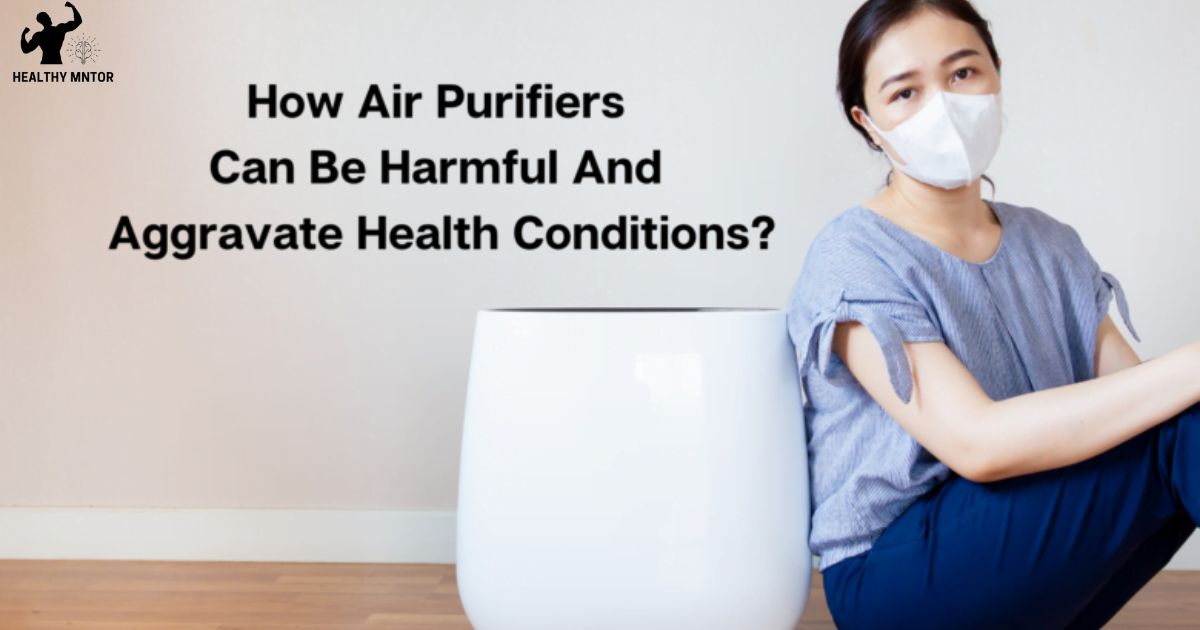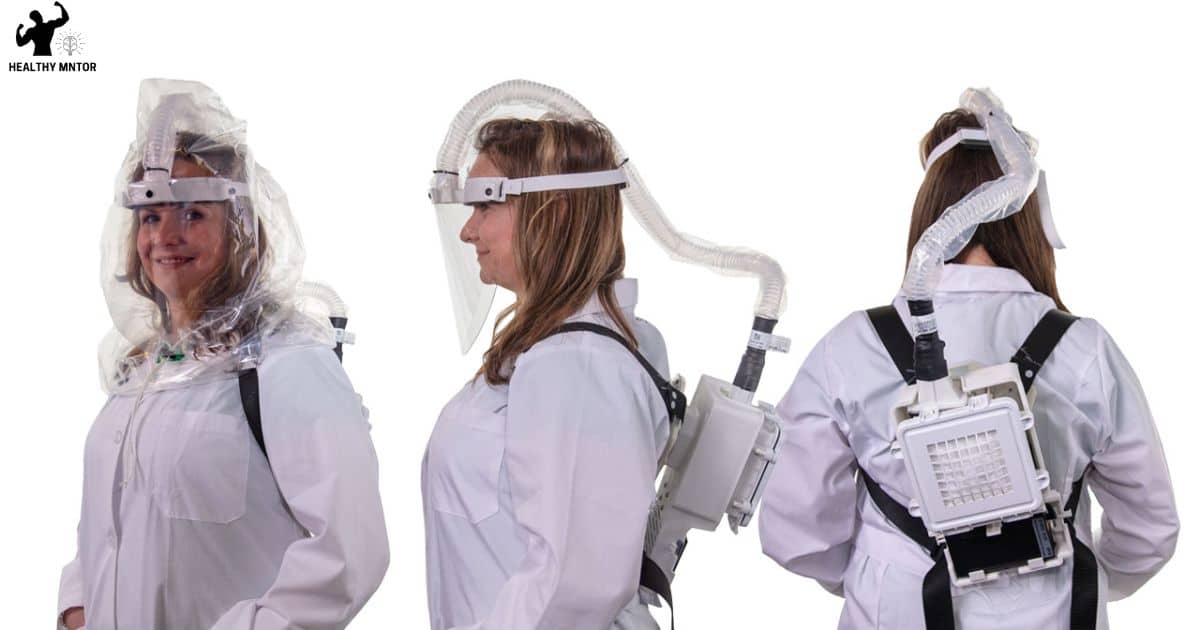Discover the hidden dangers lurking in the seemingly innocuous air purifiers that adorn our homes. While these devices claim to cleanse the air and promote better health, mounting evidence suggests that they may actually exacerbate existing health conditions. From respiratory ailments to allergies and asthma, air purifiers have the potential to worsen symptoms and release harmful pollutants into our indoor spaces. In this article, we delve into the scientific research to uncover the truth behind these seemingly beneficial gadgets, and explore safer alternatives for healthier indoor air.
Key Takeaways
- Air purifiers emit ozone, which can worsen respiratory conditions like asthma and COPD.
- Some air purifiers release harmful chemicals like VOCs, which can irritate the airways and trigger respiratory symptoms in individuals with pre-existing conditions.
- Air purifiers can create a false sense of security, leading to neglect of other important measures like proper ventilation and cleaning.
- Individuals with allergies should consider the benefits and drawbacks of air purifiers before use and consult with healthcare professionals.
The Potential Health Risks of Air Purifiers
The current discussion topic explores the potential health risks associated with using air purifiers, particularly in terms of the increased prevalence of respiratory symptoms among individuals exposed to high levels of ozone emitted by these devices. Ozone, a known lung irritant, can cause coughing, chest tightness, and shortness of breath. Research has shown that prolonged exposure to ozone can lead to the development or exacerbation of respiratory conditions such as asthma and chronic obstructive pulmonary disease (COPD). Several studies have found a correlation between the use of air purifiers that emit ozone and an increased risk of respiratory symptoms. It is important for individuals with respiratory conditions or sensitivities to carefully consider the potential health risks before using air purifiers, especially those that release ozone.
Air Purifiers and Respiratory Conditions: A Troubling Connection
Air purifiers have been found to exacerbate respiratory conditions, such as asthma and COPD, and it is crucial to understand the troubling connection between these devices and the worsening of these health conditions. While air purifiers are designed to improve indoor air quality by removing pollutants, recent studies have shown that they can actually release harmful chemicals into the air, such as ozone and volatile organic compounds (VOCs). These chemicals can irritate the airways and trigger respiratory symptoms in individuals with pre-existing conditions. Additionally, air purifiers can create a false sense of security, leading people to neglect other important measures, such as proper ventilation and regular cleaning, which are essential for maintaining clean air indoors. It is important for individuals with respiratory conditions to consult with healthcare professionals before using air purifiers and to consider alternative options for improving indoor air quality.
Common Health Conditions Aggravated by Air Purifiers
In individuals with common health conditions, such as allergies and sensitivities, the use of air purifiers can potentially worsen symptoms and trigger adverse reactions. While air purifiers are designed to remove pollutants and improve indoor air quality, they can also have unintended consequences for certain individuals.
- For individuals with allergies: – Air purifiers can stir up allergens, such as dust mites and pet dander, leading to increased symptoms like sneezing, coughing, and itchy eyes. – Some air purifiers produce ozone as a byproduct, which can further irritate the respiratory system and exacerbate allergy symptoms.
- For individuals with sensitivities: – Air purifiers may release volatile organic compounds (VOCs) into the air, which can cause headaches, nausea, and other symptoms in sensitive individuals. – The noise generated by air purifiers can disrupt sleep and worsen conditions like insomnia and anxiety.
It is important for individuals with allergies and sensitivities to consult with healthcare professionals before using air purifiers to minimize any potential risks and ensure appropriate management of their health conditions. How Air Purifiers Can Be Harmful and Aggravate Health Conditions? Find out more information.
Harmful Pollutants Released by Air Purifiers: What You Need to Know
Several harmful pollutants can be released by air purifiers, so it is crucial to be aware of their potential risks and take necessary precautions. While air purifiers are designed to improve indoor air quality, they can inadvertently release pollutants that can aggravate existing health conditions and pose risks to individuals. One such pollutant is ozone, a gas that is known to cause respiratory irritation and worsen asthma symptoms. Another concern is the release of volatile organic compounds (VOCs) from air purifiers, which can contribute to indoor air pollution and potentially lead to adverse health effects. Additionally, some air purifiers use ionizers or electrostatic precipitators, which can generate harmful byproducts such as ozone and ultrafine particles. To minimize the risks associated with air purifiers, it is essential to choose devices that are certified by reputable organizations and follow manufacturer instructions for proper use and maintenance. Regularly cleaning and replacing filters can also help reduce the release of pollutants.
Understanding the Risks: How Air Purifiers Can Worsen Allergies
A significant factor to consider when using air purifiers is the potential exacerbation of allergies, as they can introduce allergens into the air and worsen symptoms. While air purifiers are designed to remove pollutants and improve indoor air quality, they may inadvertently release allergens such as pollen, dust mites, and pet dander into the air. This can lead to increased allergy symptoms, including sneezing, coughing, and itchy eyes. To better understand the risks, it is important to consider the following:
- Air purifiers with inadequate filtration systems may not effectively capture allergens, allowing them to circulate in the air.
- Poor maintenance and infrequent filter changes can result in the accumulation of allergens in the purifier, leading to their release back into the air.
Considering these potential risks, it is crucial to weigh the benefits and drawbacks of air purifiers before making a decision, especially for individuals with allergies. Now, let’s delve into the impact of air purifiers on asthma and breathing difficulties.
The Impact of Air Purifiers on Asthma and Breathing Difficulties
Air purifiers can alleviate asthma symptoms and improve respiratory health, but it is essential to understand their impact on individuals with breathing difficulties. While air purifiers can be beneficial for asthma sufferers by removing allergens and pollutants from the air, they may also have potential drawbacks. Some air purifiers produce ozone, a gas that can irritate the airways and worsen asthma symptoms in certain individuals. It is crucial to choose an air purifier that does not emit ozone or select one with low ozone emissions. Additionally, air purifiers may not be effective in removing all asthma triggers, such as dust mites or pet dander, requiring alternative measures to be taken. It is important for individuals with asthma to consult with healthcare professionals before using air purifiers to ensure they choose the right product and understand its potential impact on their respiratory health.
Safer Alternatives to Air Purifiers for Healthier Indoor Air
One alternative to air purifiers for achieving healthier indoor air quality is the use of natural ventilation systems. These systems rely on the natural flow of air to circulate and refresh the air in a building. Here are two sub-lists to illustrate the benefits of natural ventilation systems:
Advantages: – Cost-effective: Natural ventilation systems typically require less energy to operate compared to air purifiers, resulting in potential cost savings. – Fresh air supply: Natural ventilation systems bring in fresh outdoor air, which can help dilute indoor pollutants and improve overall air quality.
Considerations: – Weather-dependent: Natural ventilation systems are dependent on weather conditions, which may limit their effectiveness during extreme weather conditions. – Pollen and allergens: Open windows or doors can allow pollen and allergens to enter the indoor space, potentially causing discomfort for individuals with allergies.
When considering alternatives to air purifiers, natural ventilation systems offer a viable option for improving indoor air quality while also considering cost-effectiveness and potential limitations.
Frequently Asked Questions
Are Air Purifiers Safe to Use for Everyone, Including Individuals With Respiratory Conditions?
Air purifiers are generally safe for use, but their impact on individuals with respiratory conditions may vary. It is essential to consider factors such as the type of purifier, specific health conditions, and individual sensitivities before determining the suitability of air purifiers for such individuals.
Can Air Purifiers Worsen Allergies Instead of Providing Relief?
Air purifiers have the potential to worsen allergies instead of providing relief. Factors such as improper maintenance, inadequate filtration, and the release of ozone or other harmful byproducts can contribute to this negative effect.
What Are the Potential Harmful Pollutants Released by Air Purifiers?
Potential harmful pollutants released by air purifiers include ozone, volatile organic compounds (VOCs), and byproducts from the purification process. These substances can worsen respiratory conditions and pose health risks, emphasizing the need for careful selection and usage of air purifiers.
Are There Certain Health Conditions That Are More Likely to Be Aggravated by Air Purifiers?
Certain health conditions may be aggravated by air purifiers. Individuals with respiratory issues, such as asthma or allergies, may experience worsened symptoms due to the release of harmful pollutants or irritants.
What Are Some Alternatives to Using Air Purifiers for Improving Indoor Air Quality?
There are several alternatives to using air purifiers for improving indoor air quality. These include proper ventilation, regularly cleaning and dusting, using natural air purifiers like plants, and reducing the use of products that emit pollutants.
Conclusion
In conclusion, it is crucial to be aware of the potential health risks associated with air purifiers. While they may seem beneficial in improving indoor air quality, they can actually aggravate respiratory conditions and release harmful pollutants. Understanding these risks is essential, particularly for individuals with allergies, asthma, and breathing difficulties. It is important to explore safer alternatives for achieving healthier indoor air, ensuring the well-being of individuals and their families.






